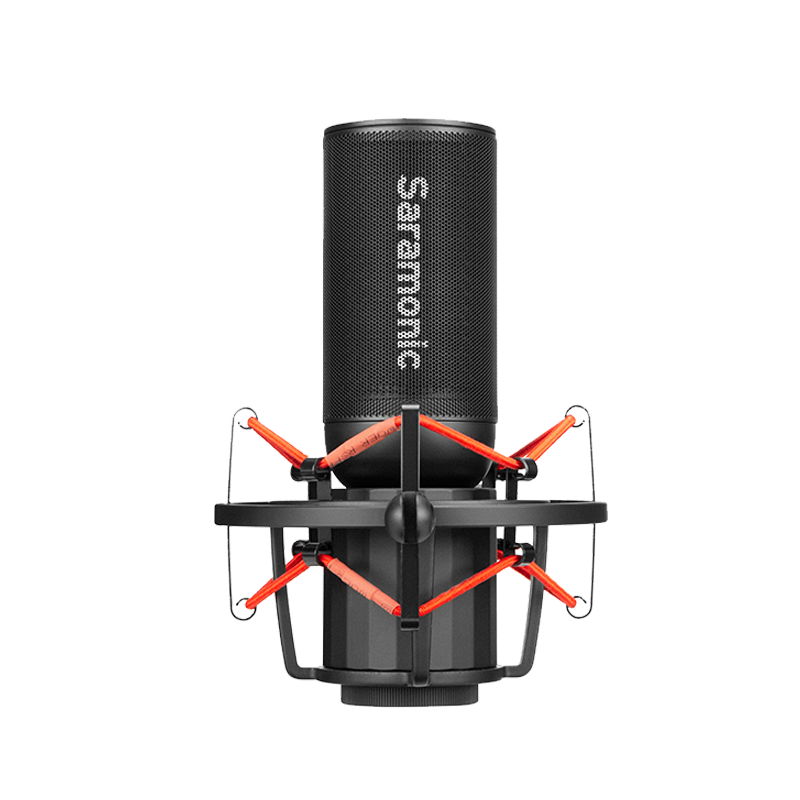Uncover the Secrets Behind the Best Studio Microphones: What You Need to Know!
In the world of music production and audio recording, the quality of sound captured is paramount. A good studio microphone acts as the bridge between the artist's voice or instrument and the recording medium, making it an essential tool in any recording environment. Whether you're a seasoned professional or an aspiring musician, understanding the importance of studio microphones can greatly enhance your recording experience. The right microphone can bring out the nuances of a performance, ensuring that every note and word resonates with clarity. As we delve into the various features and factors to consider when selecting a studio microphone, we’ll also share insights and experiences that highlight just how much impact these devices can have on your audio projects.

Understanding Studio Microphones
Studio microphones are specialized devices designed to capture sound with precision and quality. There are several types of studio microphones, each with its unique characteristics and applications. Dynamic microphones are known for their durability and ability to handle high sound pressure levels, making them ideal for live performances and loud sound sources. Condenser microphones, on the other hand, are favored in studio settings for their sensitivity and ability to capture fine details in vocal and instrumental recordings. Ribbon microphones, though less common, offer a warm and smooth sound that many audio engineers appreciate for specific applications. Each type serves a different purpose, and knowing how they function can help you choose the best microphone for your needs.
Key Features of Good Studio Microphones
When searching for a good studio microphone, there are several essential features to consider. Frequency response is crucial; it determines how well the microphone captures various sound frequencies, affecting the overall audio quality. Sensitivity is another important aspect, indicating how effectively a microphone converts sound waves into electrical signals. Polar patterns define the microphone's sensitivity to sound from different directions—omnidirectional mics capture sound from all angles, while cardioid mics focus on sound directly in front of them. Connectivity options, such as XLR or USB, can also influence your choice, especially in relation to your recording setup. Understanding these features allows you to select a microphone that aligns with your recording goals.
Assessing Sound Quality
Sound quality is a defining factor in microphone performance, and it can be assessed through various attributes such as clarity, warmth, and detail. Clarity ensures that every vocal nuance is heard, which is especially important for spoken word recordings or intricate musical performances. Warmth, often associated with the richness of sound, can make a voice or instrument feel more pleasant and inviting. Detail is about capturing the subtle characteristics that give a performance its unique flavor. Each recording scenario might require a different emphasis on these qualities; for instance, vocals may benefit from a microphone that highlights clarity, while instruments might thrive with a warmer sound. Evaluating these aspects helps in determining which microphone will best suit your specific recording needs.
Popular Brands and Their Characteristics
The market is filled with several reputable brands known for producing high-quality studio microphones. Each brand tends to have its unique characteristics and a loyal following among audio professionals. Some brands are synonymous with reliability and durability, often favored in live sound situations, while others are renowned for their studio microphones that excel in capturing the intricacies of sound. These brands often have distinct sonic signatures—some may produce microphones that deliver a crisp high end, while others might excel in providing a robust low end. Understanding the general reputation and characteristics of these brands can help you make an informed choice when selecting the right microphone for your recording projects.
Final Thoughts on Selecting the Perfect Studio Microphone
In conclusion, selecting the right studio microphone is a vital step in ensuring high-quality audio recordings. By understanding the different types of microphones, key features to look for, and the importance of sound quality, you can make an informed decision that aligns with your recording needs. Whether you’re recording vocals, instruments, or podcasts, taking the time to evaluate your options will ultimately lead to a more satisfying recording experience. Remember, the microphone you choose can significantly influence the final sound, so consider all these aspects carefully as you embark on your journey to find the perfect studio microphone.








تعليقات